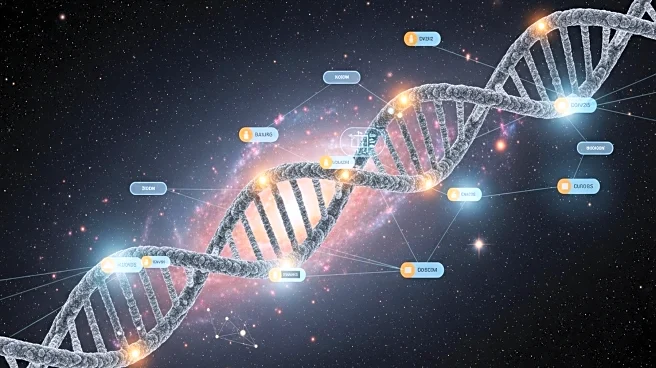What's Happening?
NASA's GeneLab project has released its 2019 annual report, detailing the progress of its Analysis Working Groups (AWGs) in optimizing spaceflight and ground-related omics data. The AWGs focus on plants, multi-omics/systems biology, microbes, and animals, aiming to generate new knowledge from complex datasets. In 2019, the AWGs demonstrated significant advancements in omics analysis, including the publication of several manuscripts and the development of new analytical pipelines. The report highlights the collaborative efforts of over 120 volunteer members from around the world.
Why It's Important?
The work of NASA's GeneLab AWGs is crucial for understanding the biological impacts of spaceflight, which can inform future missions and improve astronaut health. By advancing omics research, the AWGs contribute to the development of new technologies and methodologies that can be applied to both space and terrestrial biology. This research supports NASA's broader goals of exploring space and understanding life sciences, potentially leading to breakthroughs in medicine and biotechnology.
What's Next?
The AWGs plan to continue their research efforts, focusing on publishing new findings and developing innovative analysis techniques. Future projects will explore conserved biological pathways impacted by spaceflight and integrate human data into cross-species analyses. The AWGs aim to expand their membership and foster international collaborations to enhance the scope and impact of their research.
Beyond the Headlines
The GeneLab AWGs' work underscores the importance of interdisciplinary collaboration in scientific research. By bringing together experts from various fields, the AWGs foster innovation and drive progress in understanding complex biological systems. This approach may serve as a model for other research initiatives, highlighting the value of diverse perspectives in tackling global challenges.










